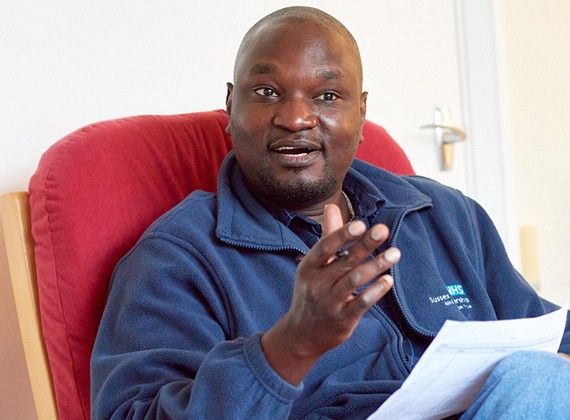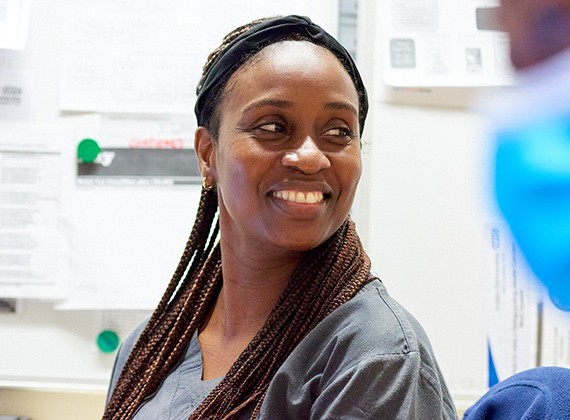

Immunopsychiatry Clinic
What is Immunopsychiatry?
Immunopsychiatry is a new field of psychiatry that focuses on the link between the immune system (which is responsible for protecting the body from infections and injury), metabolism (the process through which the body produces energy) and the brain. Research suggests that alterations in the immune system and metabolism can influence mental illnesses such as depression or bipolar disorder.
Welcome to the Immunopsychiatry Clinic
The Immunopsychiatry Clinic is a clinical research service which offers personalised advice to support and enhance clinical management of patients suffering from difficult-to-treat mood disorders (e.g. depression and bipolar) associated with chronic inflammation or inflammatory conditions.
The clinic provides clinical recommendations after a comprehensive assessment which includes the use of rating scales and questionnaires. Our recommendations might also include psychoeducation to patients, carers and healthcare providers. Psychoeducation takes an informative approach, providing individuals with knowledge to better and understand and manage mental health conditions. The themes of our psychoeducation work might focus on:
- Explanation of the interactions between brain function and the immune system;
- Discussing how these relationships can influence pharmacological treatments, both in terms of efficacy and tolerability;
- Role of dietary & nutritional choices, or engagement in mind and body therapies that can benefit mood symptoms by targeting immune and metabolic dysregulation.
Wherever required, we will also provide advice to the referrer with regard to a personalised pharmacological approach for difficult-to-treat mood disorders associated with inflammation.
Furthermore, we encourage the adoption of a multi-disciplinary and holistic approach to develop coping mechanisms to deal with mental and physical health. We aim to achieve this by discussing the role of psychological therapies for chronic health conditions and signposting to access routes to psychological therapies.
Our clinic also aims to collect research data in order to improve our work. Ultimately, we hope that the experience from our clinic will contribute to the development of new approaches for the treatment of such disabling conditions at the intersection between mood and the immune system.
All patients who attend the Immunopsychiatry clinic will continue to receive their usual care from the referring team.
The Immunopsychiatry Clinic is led by Dr Alessandro Colasanti- please find more about his research and recent publications here.
Download our Immunopsychiatry Clinic Leaflet here
If you are a referring GP, please download the referral form under the 'How do you refer to the Clinic?' tab.
The clinic is available to all patients currently seen in primary care services in Brighton and Hove; services; secondary care services (i.e. Mental Health Team and/ or Physical Health Specialist Team) who have either:
- Depression or Bipolar Disorder and evidence of raised inflammation (confirmed via evidence of chronically raised blood
C-Reactive Protein levels) - Depression or Bipolar Disorder and a medical illness associated with inflammation e.g. rheumatoid arthritis, psoriasis, inflammatory bowel disease.
If you’re a patient and would like to be referred, please discuss with your GP, Mental Health Team, and/or Physical Health Specialist Team.
If you are a clinician, speak to the patient you wish to refer and complete a referral form. You can download a referral form here.
Patients who meet the referral criteria will be contacted for a single, in-depth assessment (this may be split on more than one day) within four weeks of the referral.
After we receive your referral, our clinic assistant will contact you to book the assessment. Before you attend your appointment, we will email you a link to some questionnaires - it's important that you complete the questionnaires before your appointment so that we can get a clear picture of your current difficulties. We are happy to help you complete these if you feel this would be useful.
- Part 1 - Your response to research questionnaires might be discussed with our clinic research assistant;
- Part 2 - You will see a psychiatrist who will provide a comprehensive assessment, psychoeducation advice, and discuss possible treatment recommendations with you.
Both parts will ideally take place on the same day (all appointments are held on a Friday). However, please note that although the clinic will only provide a one-off in-depth assessment, this may happen over multiple days, depending on need.
Based on the assessment, our team will write up a letter with recommendations, potentially including lifestyle advice and advice on pharmacological treatment.
The report will be sent to the patient and the referring team.
Please note: our clinical recommendations are purely advisory. Clinical management, care coordination, and prescribing responsibilities remain with the referring clinical team.
This film explains immunopsychiatry and biological causes of depression:
This booklet about Inflammation and Mental Health is produced by the McPin Foundation.
Our panel of people with lived experience have shaped our psychoeducation programme, and we continue to be committed to involving lived experience advisors in the work we do at the Immunopsychiatry Clinic.
If you are interested in using your lived experience to help shape the research and work of the clinic, please contact: spft.
For further information, please contact us via email: spft.
Immunopsychiatry Clinic,
Research and Development
Sussex Education Centre
Sussex Partnership NHS Foundation Trust
Mill View Hospital Site
Nevill Avenue
Hove
BN3 7HZ.





